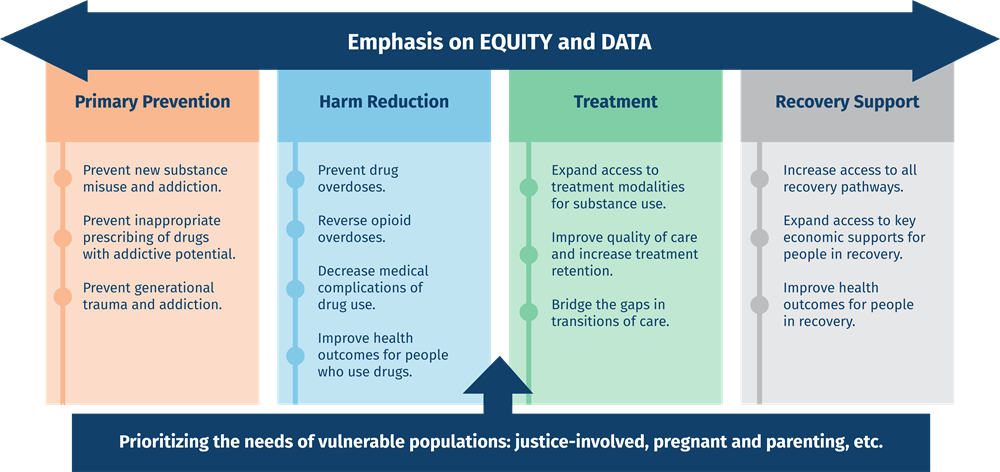The web Browser you are currently using is unsupported, and some features of this site may not work as intended. Please update to a modern browser such as Chrome, Firefox or Edge to experience all features Michigan.gov has to offer.
Michigan's Crisis Response
Governor Whitmer has called the opioid epidemic “the greatest health crisis of our lifetimes” and set a goal to cut opioid overdose deaths by half in the next five years. Learn more about the state’s all-hands-on-deck response.
Michigan Opioids Task Force
Governor Whitmer signed Executive Order 2022-12 in September 2022 to create the Michigan Opioids Task Force, bringing together departments from across state government to fight the opioid crisis. The Task Force is catalyzing action to prevent opioid misuse, increase access to treatment, and reduce the harm caused by substance use.
Meeting Announcements and Minutes
Michigan Opioids Task Force Members and Contact Information
2023 Michigan Draft Substance Use Response Framework

- The MDHHS Opioid Response Framework outlines the key focus areas of the Department in addressing the opioid crisis. The strategy Framework is driven by the Michigan Opioids Task Force Opioids Strategy and includes core efforts that are currently in place and those that the Department aims to implement.
- In 2024, the Opioids Task Force established pillar-specific subcommittees based on this framework. These subcommittees meet weekly in order to prioritize the solidification, and execution, of a comprehensive state substance use response strategy. Subcommittee reports will be provided during the monthly Opioids Task Force meeting and will be available in the meeting minutes.
MDHHS Opioid Annual Reports
2020 Opioids Task Force Annual Report
2023 MDHHS Opioid Annual Report
2023-2024 Opioids Task Force Annual Report
State Opioid Response Grants
Michigan’s opioid crisis response focuses on prevention, treatment, and harm reduction. A summary of specific programs supported is available here.
Many programs are implemented by region through the Prepaid Inpatient Health Plans, regional organizations that manage behavioral health treatment in Medicaid.
Treatment providers, hospitals, community organizations, law enforcement agencies and others interested in participating in programs to address the opioids crisis are encouraged to contact the regional PIHP using the contact information below. Inquiries about statewide strategy can be directed to MDHHS-OpioidsTaskForce@michigan.gov.